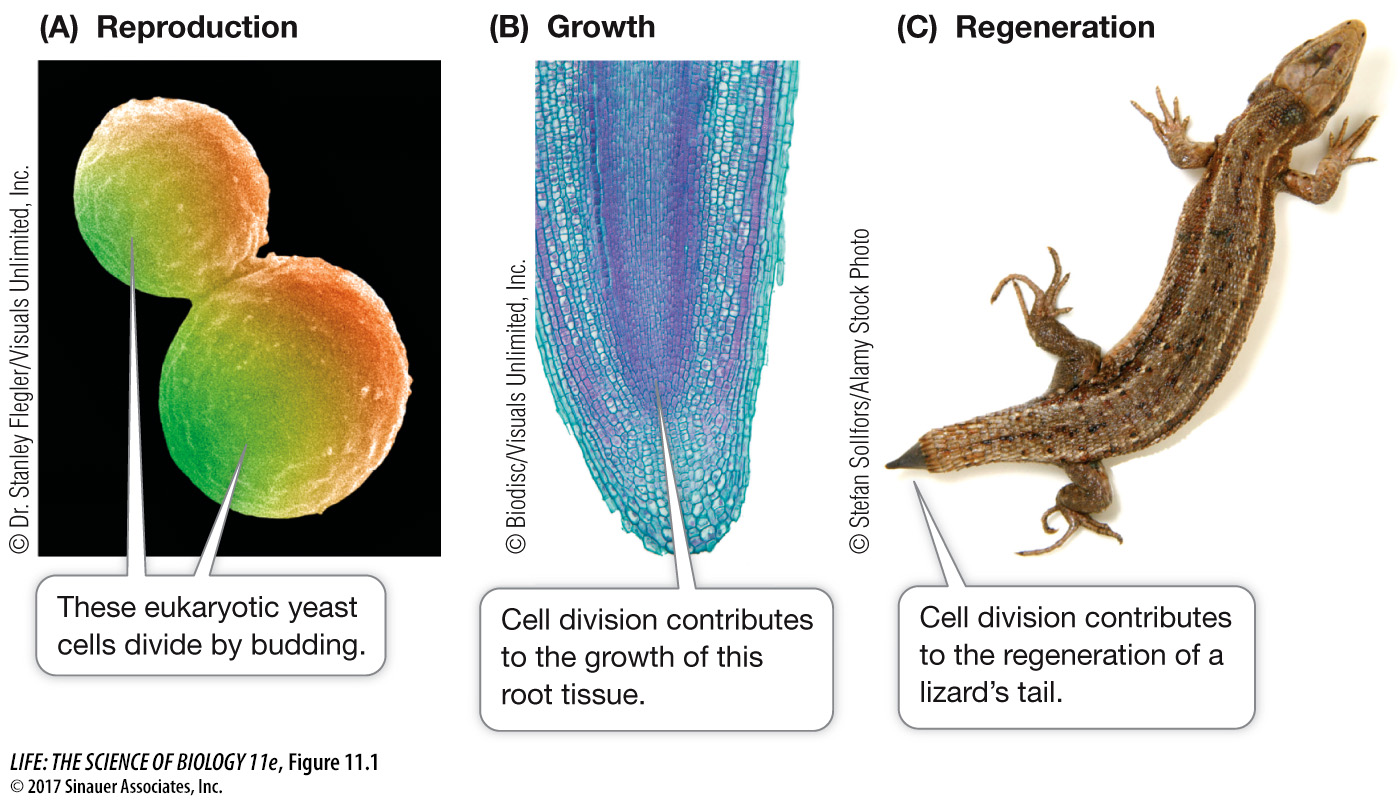key concept
11.1
All Cells Derive from Other Cells
key concept
11.1
All Cells Derive from Other Cells
The life cycle of an organism, from birth to death, is intimately linked to cell division. Cell division plays important roles in the development of an organism from a single cell, in the growth and repair of tissues in multicellular organisms, and in the reproduction of all organisms (Figure 11.1). Cell division in both prokaryotes and eukaryotes entails the following four events:
A reproductive signal. An intracellular or extracellular signal initiates cell division.
Replication of DNA. The cell’s genetic material must be duplicated so that each of the two new cells will have a complete, identical set of genes.
Segregation of replicated DNA. The replicated DNA must be equally distributed to each of the two new cells.
Cytokinesis. Enzymes and organelles for the new cells must be synthesized, and new material must be added to the cell membrane (and the cell wall, in organisms that have one), in order to separate the two new cells.
As you will see, these four events happen differently in prokaryotes and eukaryotes.

focus your learning
All cell division processes involve four main events: initiation, DNA replication, DNA segregation, and cytokinesis.
Cell division in prokaryotes is rapid, occurs in response to environmental signals, and results in new individual cells, which are often the entire organism.
Cell division in eukaryotes is complex, occurs in response to internal signals, and may reproduce the entire organism for single-
celled eukaryotes, or result in more cells within a multicellular organism.